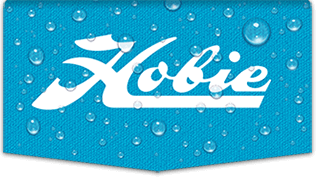I'll say pre-'84 because as far as I can tell, the adjustable upper casting was introduced in '84.
from FAQ's
Quote:
RUDDER RAKE -
Rudder rake (forward or aft in the lower casting) changes the helm feel. Weather helm (pull on the tiller) is caused by the rudder being aft of neutral. Lee helm is caused by the rudder rake being too far forward. Best adjustment is to have slight weather helm on all sailing angles. This allows you to hold the till agains a slight pull for stable sailing angles. The boat should round up slowly if you drop the tiller. Lee helm is dangerous and can cause you to loose control of the boat. Neutral helm can be difficult as the tiller is pulling and or pushing against you on different sailing angles and can cause you to have erratic steering.
On older boats, rudder rake is adjusted by re-drilling the rudder blade. Either the upper casting hole or possibly both. Newer boats use the upper casting plate (see adjustment under "CAMS" above) and set screw in the lower casting for rake adjustments. There is a basic rudder rake setting to compare to. You can also use a drilling template
http://www.hobiecat.com/support/tech/rudder.htmlFor proper rake adjustment you may need to try several settings. Helm feel will change with different mast rake, sailing angles and sail settings...
Start off with the rudders in the locked down position. Measure down the blade 12" from the bottom of the lower casting. Mark the rudder with a line 2" long perpendicular to the 12" point (fore and aft on the blade). Using a very thin piece of line, starting at the top of the rudder pin, align the "line" with the rudder pin top to bottom (on the pins center line / axis) and check where the line intersects the mark on the rudder. Mark the point where your rudder pin axis crosses the mark you made 12" down the blade. Measure in from the front of the rudder. A larger measurement means that the rudder is raked forward more. More forward rake is less weather helm. Optimally, you should have 1 5/8" to 1 3/4" for a measurement. To achieve the 1 3/4" number, you might have to re-drill the front hole on the rudder or file away at the front of the rudder where it hits the casting. To much forward rake can cause lee helm and THAT is WORSE and even dangerous. The boats sail better and are safer if the boat rounds up slowly when the tiller is released.
You can use the above technique to measure and re-drill a blade. Mount the blade on the lower casting. Make all of the above measurements and set (and hold) the rudder in the desired rudder rake position. Lock the upper casting onto the rudder and lower casting. Push the upper assembly up into the cam to seat it tightly (that holds the rudder in the raked position once the rudder system is fully set up). Align the tiller arm angle (vertical position) with the rudder assembly on the opposite side of the boat. You can mark the bolt hole position or drill right through using the casting as a drill guide. You must hold the upper arm in position while drilling this way. I angle the drill slightly forward rather than straight through. This forces the upper casting forward more as the drill reaches the opposite side of the casting after going through the rudder blade. If the hole is too far aft, the rudder will slip aft a bit when under sailing loads.
So let's (Matt?) break these pieces down
Quote:
On older boats, rudder rake is adjusted by re-drilling the rudder blade. Either the upper casting hole or possibly both. Newer boats use the upper casting plate (see adjustment under "CAMS" above) and set screw in the lower casting for rake adjustments. There is a basic rudder rake setting to compare to.
So you're saying compare your rudder rake with a newer boat with adj. uppers?
Quote:
Has the "drilling template" gone through iterations over the years? (like the standing rigging dimensions) In other words, you'll be "close" by simply re-drilling using the template?
_________________
Sheet In...Max Out
www.fleet297.org
sailflatlands at gmail dot com





